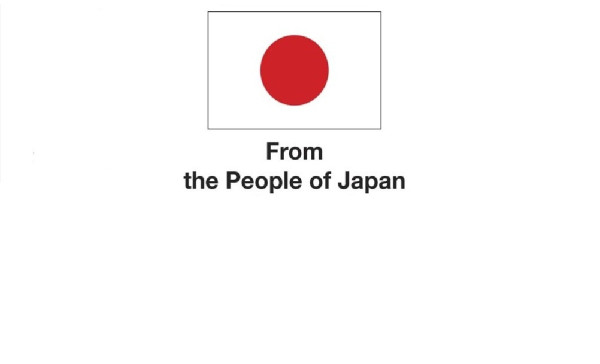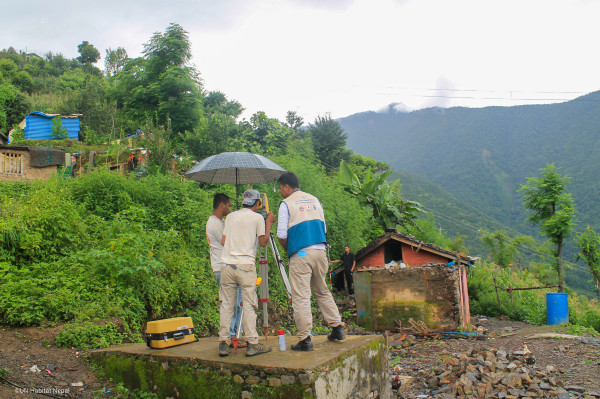
Livelihoods Improvement and Disaster Resilience Enhancement in the areas affected by the Jajarkot Earthquake
|
Title: |
Livelihoods Improvement and Disaster Resilience Enhancement in the areas affected by the Jajarkot Earthquake (Jajarkot Earthquake Recovery Project) |
|
Funded by: |
Government of Japan (GOJ) |
|
Implemented by: |
UNDP Nepal (lead) and UN-Habitat Nepal |
|
Purpose: |
To support basic service continuity of the local governments impacted by 2023 Earthquake and restoration of community infrastructure for enhancement of livelihood of the impacted communities |
|
Collaboration: |
Five local governments (palikas) of Jajarkot and Rukum West districts Bheri, Nalgadh, Sanibheri, Aathbiskot and Barekot |
|
Duration: |
April 2025-February 2026 |
PROJECT BACKGROUND:
On 3rd November 2023, a 6.4 magnitude earthquake struck Karnali Province, with the epicenter identified near Ramindanda of Jajarkot district. The initial earthquake, followed by at least 466 aftershocks, caused catastrophic damage resulting in a total of 154 deaths (70 males and 84 females) and 366 injuries, and at least 250,000 people directly affected. Out of 18 districts impacted by the earthquake, Jajarkot and West Rukum were most heavily impacted. The Provincial Emergency Operation Centre of Karnali Province reported that 171 drinking water schemes, 17 irrigation schemes, 355 schools, 54 police stations, 42 public buildings, and five micro hydro schemes were fully or partially damaged. The earthquake impacted more than 62,000 private houses with significant damages to livelihoods, affecting cattle farming and beekeeping, and impacting agriculture production/storage and related infrastructure.
The intervention builds on UNDP’s engagement after Jajarkot earthquake through the project “Rebuilding Livelihoods and Enhancing Governance for Recovery and Resilience in earthquake affected areas of Jajarkot (RLEGRR)”. The project will not only support the communities to recover from the earthquake but also build capacities of the municipalities to restore disrupted public services, enhance disaster preparedness, and start long-term recovery and reconstruction.
UNDP Nepal has collaborated with UN-Habitat Nepal to provide technical assistance for earthquake-affected municipalities /districts to deliver basic services and support in livelihood recovery through skill-based training and market linkages, further supported by restoration of community infrastructures. UN-Habitat will support in the construction of 10 prefabricated buildings for public service continuity; 10 Common Facility Centre (CFC) / Market Centre (Haatbazaar); restoration of 25 community infrastructure to support livelihood recovery.
OBJECTIVE:
In close collaboration with the municipalities and other ongoing initiatives in the area, the Project outcomes will contribute to:
- strengthen governance capacity for delivery of basic services and enabling environment for long-term reconstruction and resilience;
- promote community-led reconstruction of damaged small infrastructures for livelihoods opportunities, coupled with psychosocial support; and
- strengthen capacities and mechanisms for emergency preparedness and response to enhance resilience against future disasters.
KEY OUTCOMES & ACTIVITIES:
KEY ACTIVITIES IMPLEMENTED BY UN-HABTIAT:
- Construction of prefabricated buildings in earthquake-affected local governments/districts to support continuity of basic services to support smooth implementation of the government’s reconstruction programme. 10 prefabricated transitional buildings will be constructed.
- Support in livelihood recovery through skill-based training and market linkages, further reinforced by restoration of 25 damaged community infrastructure and establishment of 10 community facility centers.
IMPLEMENTATION STRATEGY AND SOCIO-ECONOMIC CO-BENEFITS:
The project strategies will ensure that the choice of community infrastructure and provision for livelihood support are based on the specific needs of these groups in the targeted municipalities. To ensure any adverse impacts of project activities, the project will conduct social and environmental safeguard screening to identify risks, prepare and implement risk mitigation plan, and monitor the progress of implementation. The project will ensure organizing regular meetings with the affected community to ensure that their specific concerns are heard and addressed during implementation.

